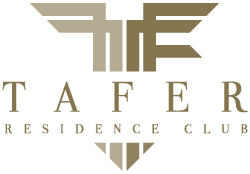Preparing yourself for a job interview in Mexico 2024

Here are some great tips for preparing yourself for a job interview. Take our advice and excel!
1. Research

Rule n°1. Do some research to prepare yourself for a job interview. You could call the person who scheduled the interview for a detailed job description and set about reading about the history of the company by visiting the employer’s website and social media profiles or do a Google search for information on the company.
2. Etiquette

Greet any staff you encounter and especially your interviewer(s) in a polite yet enthusiastic manner. Be aware of your body language and what you say to people from the moment your step on the property. Be sure to shake hands firmly and make plenty of eye contact. Remember to smile.
3. Listening skills

Listening matters just as much as answering questions during an interview, so pay close attention to the conversation; appearing interested will help build rapport with the interviewer. It is also better to take a moment to think about a question before rushing in with an answer. Practicing with a friend will help.
4. Dress to Impress

Think about what you are going to wear carefully choosing your outfit for the job in mind.
5. Don’t be late

Make sure you leave with plenty of time so if there are any traffic or parking issues, you won’t end up stressed right before you go in.
6. Go to bed early

Get a good night’s rest and eat a healthy breakfast to fuel your brain before your interview. Even if you can’t sleep, going to bed early will ensure you are better rested.
7. Control your nerves

Getting your nerves under control will help you focus, get into the conversation and appear attentive. Avoid caffeine, take deep breaths, add some lavender oil to a handkerchief. Visualizing yourself in a calm state can also help.
Dos and Don’ts of Resume Writing: PART 1
Learn what to avoid and what to definitely include when you are creating your resume. If you want a company to notice you and hire you, then we highly recommend that you look at this article. In this two part article you will find some of the best “dos” and “don’ts” for resume writing that will make you stand out from the rest.
1. Make it attractive

Nowadays as the world becomes more computer savvy, there is no excuse not have an attractive resume. Most importantly, it should be easy to read, which means that it should not be overloaded with too much text. You should also make sure the resume is formatted and easy on the eye. Add a little graphic design if you are creative, but only a little, as overproduced resumes appear less professional and juvenil.
2. Font

The font is very important, choose standard fonts like Arial, New Times Roman or Calibri that are easy to read. Fancy fonts can be a headache for employers who may wish to skim read your resume for shortlisting.
3. Be selective

You don’t have to list every single job you have had since high school (unless you don’t have much experience, then everything counts). Only list previous employers which demonstrate your suitability for the job you are applying for.
4. Tailor your resume for each job
 Related to the previous point, you should review your resume every time you send it out to an employer and customize it for the position you hope to fill. Make sure all the information relevant to the job you are applying for is easy to identify.
Related to the previous point, you should review your resume every time you send it out to an employer and customize it for the position you hope to fill. Make sure all the information relevant to the job you are applying for is easy to identify.
5. Don’t write about your weaknesses

This may sound obvious, but you would be surprised how many people reference the skills they lack. Be confident and focused when you are preparing your resume. If the job that you are applying for is asking for something that you don’t know how to do, enrol in an online course and mention how you are currently studying this area. The employer may be impressed by your assertiveness.
Dos and Don’ts of Resume Writing: PART 2
6. Stick to the facts

Besides not lying on your resume, this point also relates to providing tangible factual information rather than subjective opinion. While it is good to include a statement at the beginning sharing who you are, employers want to see evidence. Accountable facts like how much money you made or saved the company, the number of projects you managed etc is more impressive than subjective waffle.
7. Be Brief and Simple
Employer tend to scan through a resume, then when something stands out and catches their eyes they will read this area. So be strategic about what you include.
8. Don’t Add References Unless Asked

These days there is no need to add references unless the employer has requested them. This will leave you valuable space to include details about yourself. However, if the employer does request references, then you should add the references on an additional page.
9. Think twice about including past responsibilities and duties

Detailing all of your responsibilities and tasks in your last job makes for dull reading. Employers want to read about your accomplishments and what you can offer their company. Therefore, focus on your achievements and successes.
10. Get a professional sounding email address

Make sure your email address is professional and not the one you used as a teenager. Addresses like flirtymale@yahoo.com or partyanimal@hotmail.com are not going to make the impression you are looking for.
